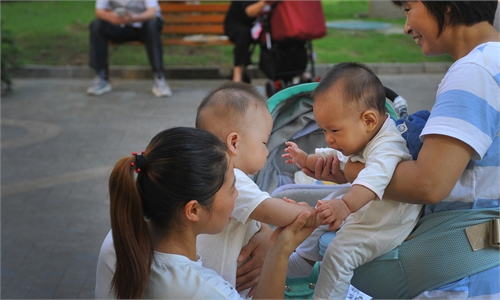China's top health body says people are having fewer children and being more selective in response to calls for more policy support

Children pose for photos at the Greater Bay Area Flower Show in Shenzhen, south China's Guangdong Province, April 8, 2023. Photo: Xinhua
China's National Health Commission (NHC) said that people are having fewer children and are being more selective about the circumstances in which they choose to start a family, in response to calls for more policies aimed at encouraging larger families.
The top health body said that it has already removed the policy of encouraging people to get married and have children at a later age when revising population and family planning law in 2015 and that government of all levels also took the rule out when formulating population and family planning policies.
The NHC response came after a political advisor proposed the need for more policies to encourage population growth in China.
The NHC noted that families having fewer children and being more selective about the circumstances for starting a family was a long-term trend across the population, citing numbers from 2017 showing that women in China were on average 25.7 years at the time of their first marriage, and the age for having first child was 26.8 years. With both numbers continue to climb over time.
The NHC said that economic burden, women’s increased focus on their careers and responsibility for taking care of children were some of the main reasons for fewer births.
In 2021, China announced policy changes which allow each couple to have up to three children after the number of the country's newborns declined for four years straight.
Many motions and proposals submitted for China's annual two sessions in March focus on boosting the low birth rate, after the Chinese mainland recorded negative population growth in 2022, the first time in 61 years. Suggestions include scrapping the requirement to be legally married to register and give birth, and granting children born to unmarried parents equal rights.
Global Times

